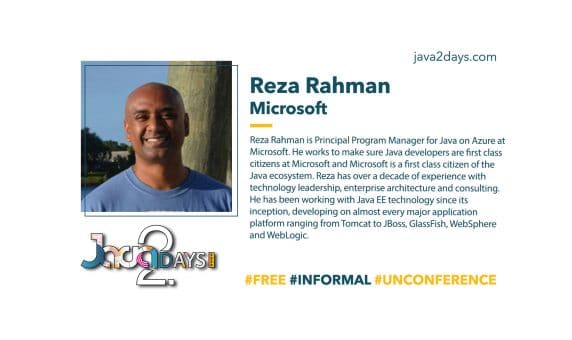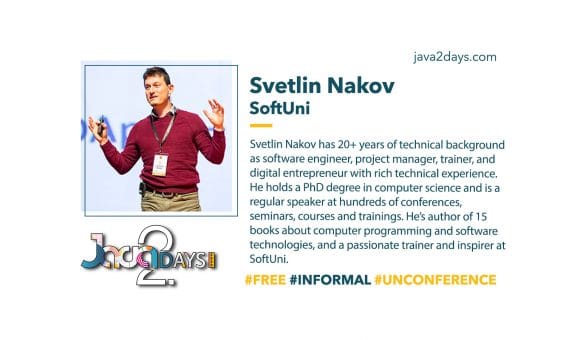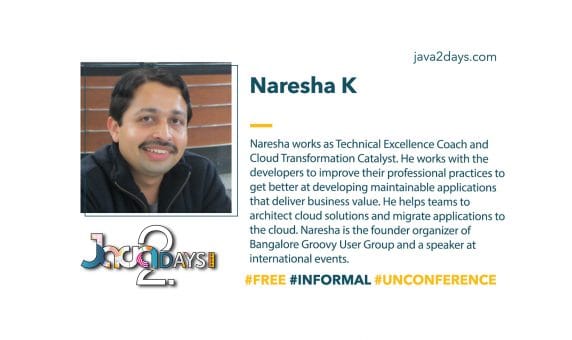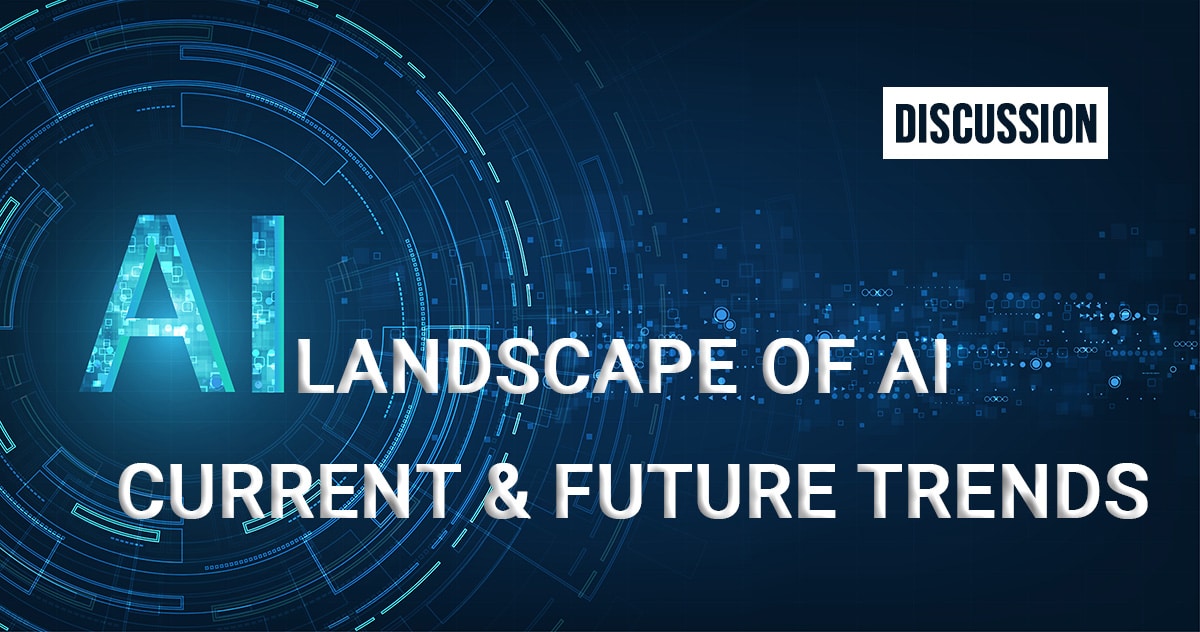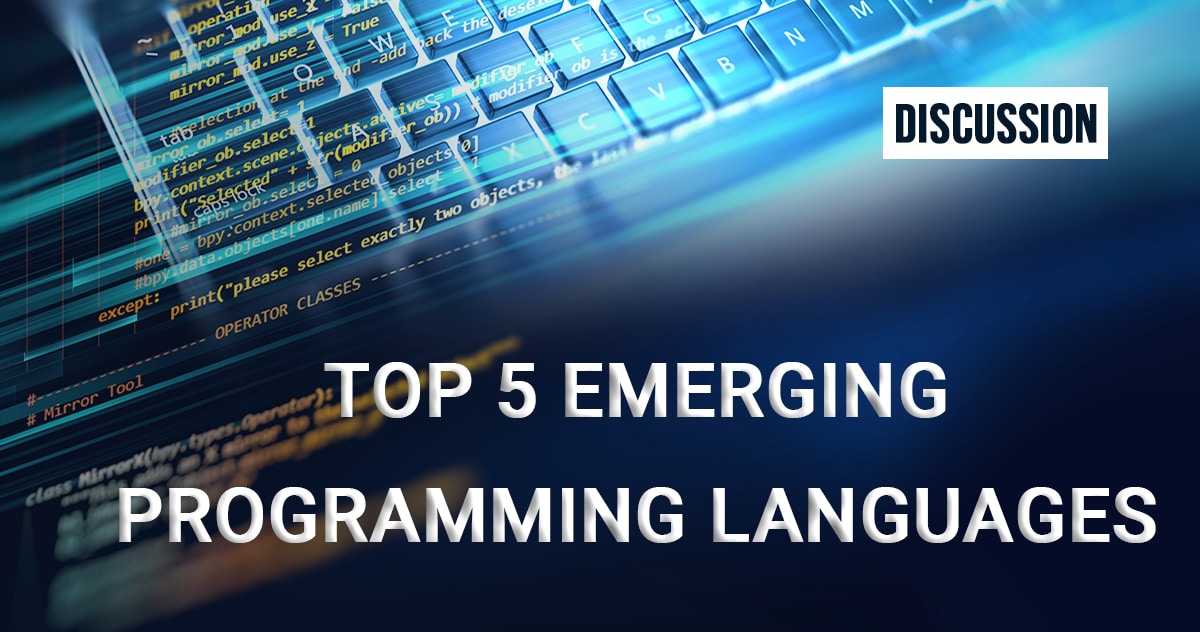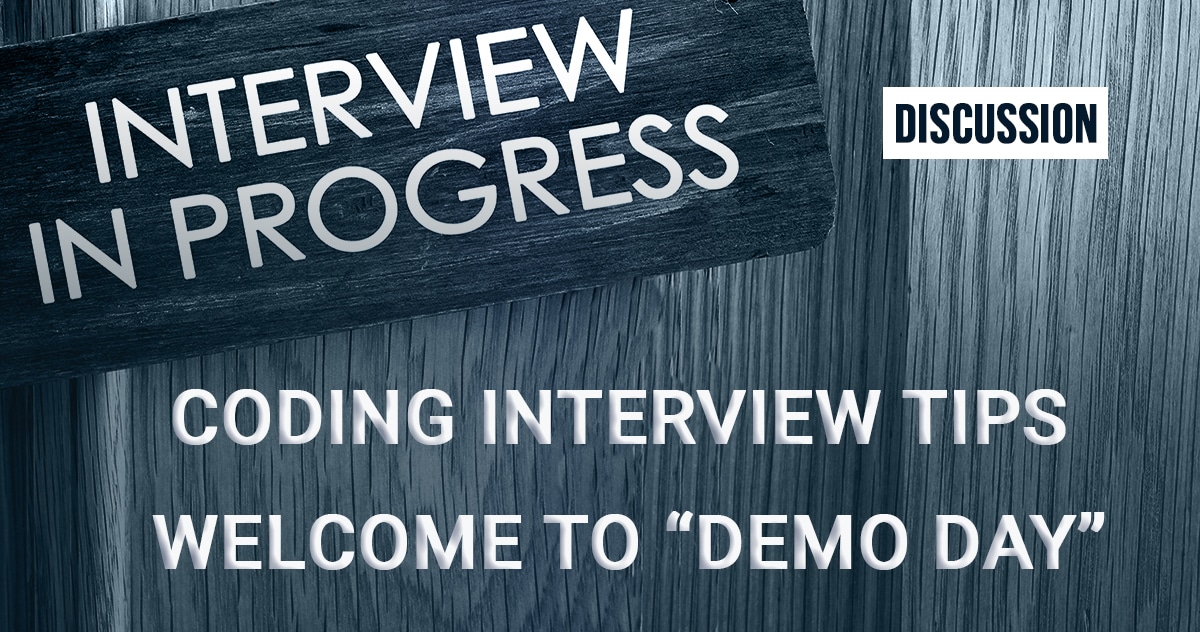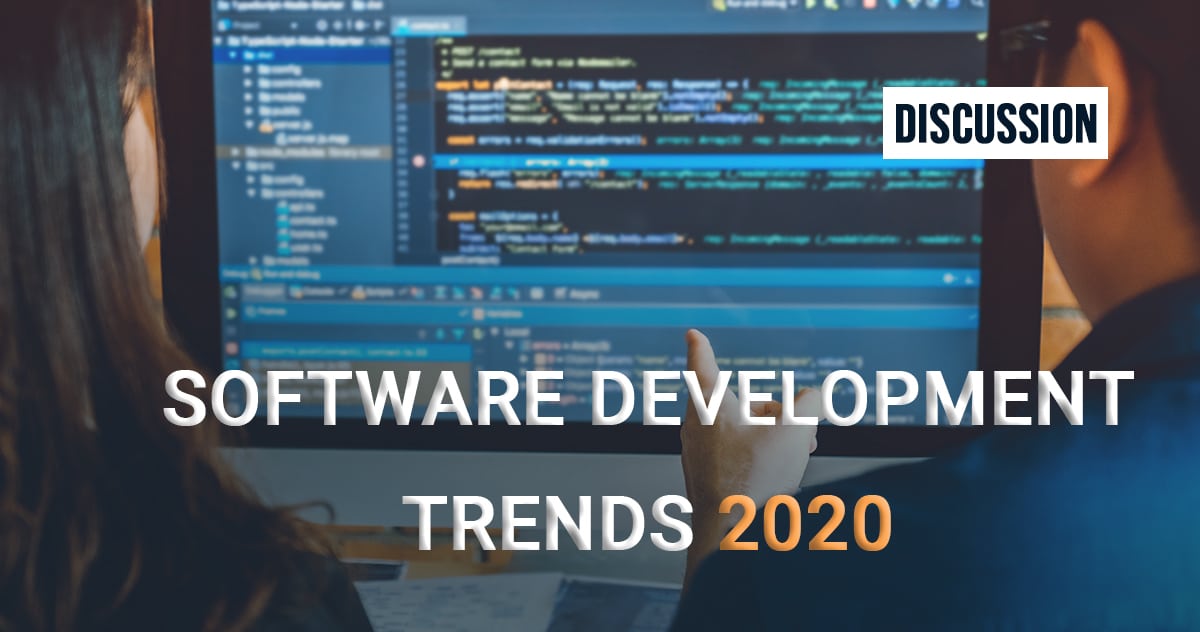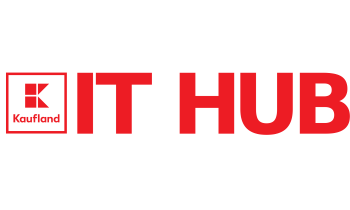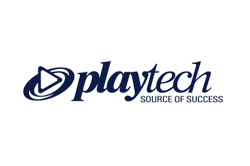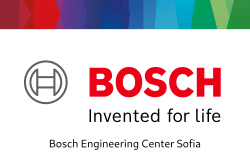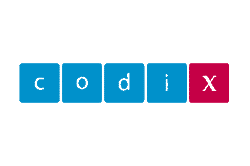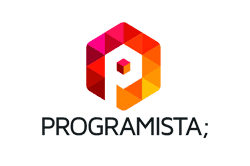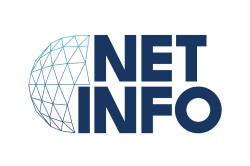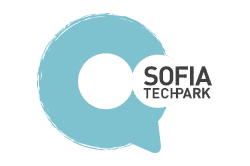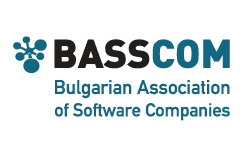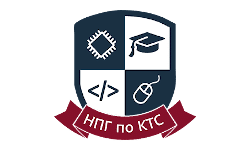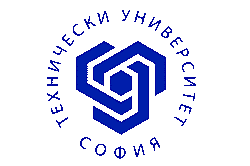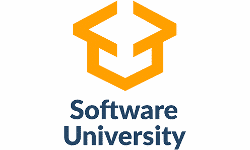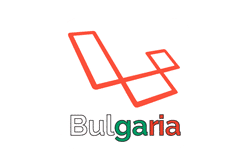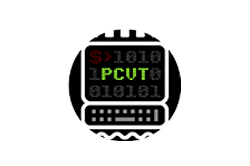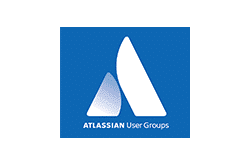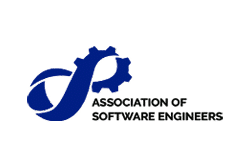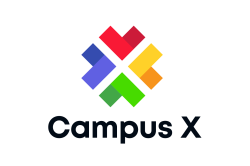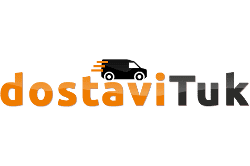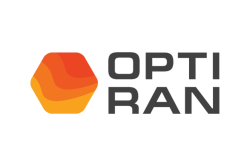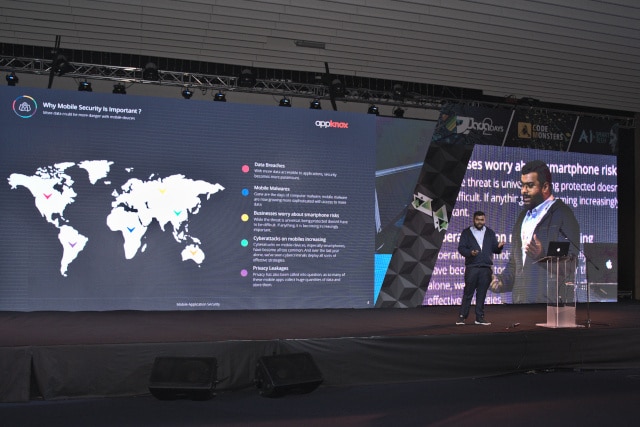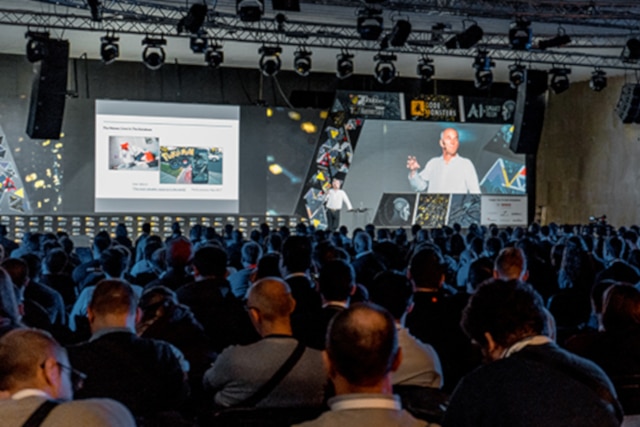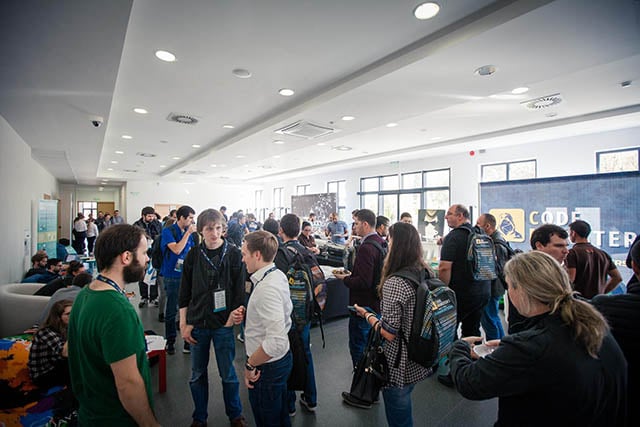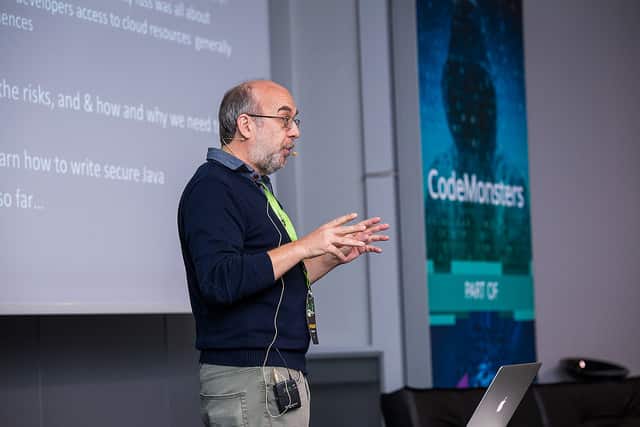21-23 December 2020, #Virtual
-
 21-23 December 2020, #VirtualRegister
21-23 December 2020, #VirtualRegister
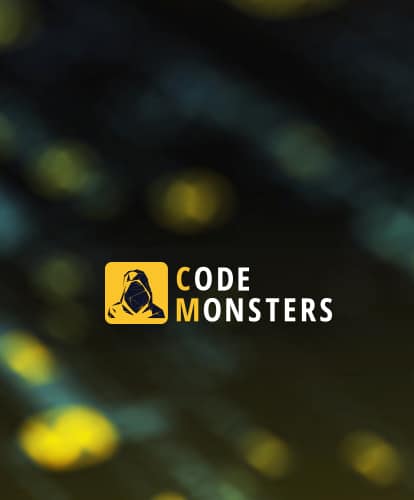
Call for papers is now open
Latest news
By:momchil Comments:0
Jakarta EE and Java with Reza Rahman
Register for the CodeMonsters conference so you can hear the two intriguing lectures from Reza…
By:momchil Comments:0
Programming languages: 2021
Svetlin Nakov has 20+ years of technical background as software engineer and he is one…
By:momchil Comments:0
Learn more about integration testing
If you want to know more about integration testing with testcontainers, then you should register…
Subscribe to our newsletter to get latest updates
Get your #free ticket now
CodeMonsters 2020 Initiatives
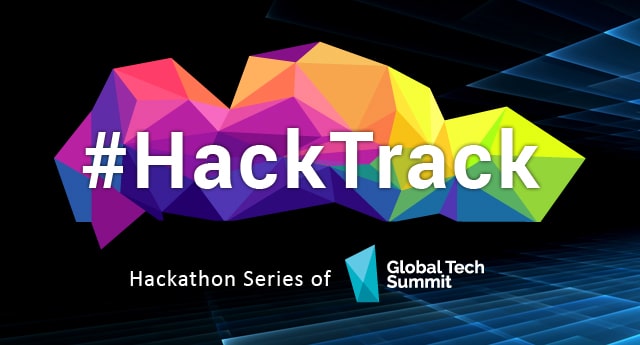
HackTrack

#WomenReality

Discussions

Join the Community!

Tools&Platforms

#JobsAhead
How to join the event?
CodeMonsters 2020 Speakers
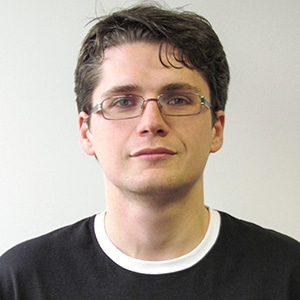
Petyo Dimitrov
Musala Soft
Petyo Dimitrov
Petyo Dimitrov is a software engineer with 15+ years of working experience in various projects for international clients. Currently, he is a Senior Software Architect at Musala Soft. His professional focus is in Java, Enterprise Application and Integration technologies, RESTful Services, Microservice Architectures and DevOps. He also enjoys sharing his experience and new technologies he is learning with colleagues at work, students at Technical University – Sofia and on different IT conferences in Bulgaria.

Reza Rahman
Microsoft
Reza Rahman
Reza Rahman is Principal Program Manager for Java on Azure at Microsoft. He works to make sure Java developers are first class citizens at Microsoft and Microsoft is a first class citizen of the Java ecosystem.
Reza has been an official Java technologist at Oracle. He is the author of the popular book EJB 3 in Action from Manning Publishing. Reza has long been a frequent speaker at Java User Groups and conferences worldwide including JavaOne and Devoxx. He has been the lead for the Java EE track at JavaOne as well as a JavaOne Rock Star Speaker award recipient. He was the program chair for the inaugural JakartaOne conference. Reza is an avid contributor to industry journals like JavaLobby/DZone and TheServerSide. He has been a member of the Java EE, EJB and JMS expert groups over the years. Reza implemented the EJB container for the Resin open source Java EE application server. He helps lead the Philadelphia Java User Group. Reza is proud to be a founding member of the Jakarta EE Ambassadors.
Reza has over a decade of experience with technology leadership, enterprise architecture and consulting. He has been working with Java EE technology since its inception, developing on almost every major application platform ranging from Tomcat to JBoss, GlassFish, WebSphere and WebLogic. Reza has developed enterprise systems for well-known companies like eBay, Motorola, Comcast, Nokia, Prudential, Guardian Life, USAA, Independence Blue Cross, Anthem, CapitalOne and AAA using Java EE and Spring. He is particularly interested in distributed systems, messaging, middleware, persistence and machine learning.
Reza is an inductee to Phi Beta Kappa, the oldest and most respected national honor society for undergraduates in liberal arts and sciences. He earned his bachelors degree from Gettysburg College. He graduated Summa Cum Laude with a double major in Computer Science and Economics as well as a minor in Mathematics.
Java EE on Azure Magic Mystery Show
This fast-paced, demo-driven, entirely slide free session will show you the many ways of effectively deploying a Jakarta EE application to Azure. We will start by deploying a local Jakarta EE application to basic IaaS on Azure. We will then deploy the same application to an entirely managed Azure PaaS. Finally we will deploy the application to Azure using Docker and Kubernetes. We will discuss the trade-offs of each approach on the way, offering guidelines for which approach might be best for your application on the cloud. At the end of the session, you will have all the demos on GitHub so you can explore them on your own.
How Microsoft Learned to Love Java
This session is a fast-paced tour of all things Java and Azure at the modern Microsoft of today. We will first talk about the why, how and what of Java and Microsoft. We will then dive right into the broad range of tools, services and APIs that Microsoft offers around Azure for Java developers. We will show a small but representative demo of a Java application most developers would feel familiar with running well on Azure. Lastly, we will discuss the road map for what Java developers can expect from Microsoft in the future. This session is as much about sharing what Microsoft offers today as it is about listening to what the Java community wants to see from Microsoft tomorrow.

Mani Sarkar

Mani Sarkar
Mani Sarkar is a passionate developer mainly in the Java/JVM space, currently strengthening teams and helping them accelerate when working with small teams and startups, as a Freelance Software, Data, ML engineer.
A Java Champion, Oracle Groundbreaker Ambassador, JCP Member, OpenJDK contributor, thought leader at developer communities and involved with F/OSS projects like @graalvm, @wandb, nbQA-dev/nbQA, and others. Writes code, not just on the Java/JVM platform but in other programming languages as well, hence likes to call himself a polyglot developer. He sees himself working in the areas of core Java, Hotspot, GraalVM, Truffle, VMs, Performance Tuning, Data, and AI/ML/DL/NLP.
An advocate of a number of agile and software craftsmanship practices and a regular at many talks, conferences and hands-on-workshops – speaks, participates, organises and helps out at many of them. Expresses his thoughts often via blog posts (on his own blog site, DZone, Medium and other third-party sites), and microblogs (tweets).
You can read about my recent achievements and developments here.
Discussion :: Women in Software Development Industry – Challenges, Career, Leadership

Alvaro Muñoz
GitHub Security Lab
Alvaro Muñoz
Alvaro Muñoz (@pwntester) works as Staff Security Researcher with GitHub Security Lab. His research focuses on different programming languages and web application frameworks searching for vulnerabilities or unsafe uses of APIs. Before joining the research field, he worked as an Application Security Consultant helping enterprises to deploy their application security programs. Muñoz has presented at many security conferences including DEF CON, RSA, AppSecEU, Protect, DISCCON, etc and holds several InfoSec certifications, including OSCP, GWAPT and CISSP, and is a proud member of int3pids CTF team. He blogs at http://www.pwntester.com.
How Variant Analysis helped secure the fight against COVID-19
In security, ‘variant analysis’ is the process of searching for variants of known vulnerabilities. This used to be done with grep and painstaking manual code audits, but it can be automated with a powerful semantic query language like CodeQL. I will show how we performed a variant analysis using CodeQL which started analyzing a vulnerability in Nexus Repository Manager and ended up finding many other critical vulnerabilities including a Remote Code Execution (RCE) in Germany’s Corona-Warn-App (German’s Contact tracing app). Finally, I’ll explain the factors that must come together to drive the adoption, scalability, and success of such technology.
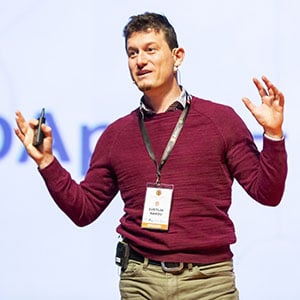
Svetlin Nakov
SoftUni
Svetlin Nakov
Svetlin Nakov (http://nakov.com) Svetlin Nakov has 20+ years of technical background as software engineer, project manager, consultant, trainer, and digital entrepreneur with rich technical experience (blockchain, Web development, information systems, databases, cryptography, C#, Java, JS, PHP, Python). Svetlin Nakov is a regular speaker at hundreds of conferences, seminars, courses and other trainings and holds a PhD degree in computer science. He is author of 15 books about computer programming and software technologies, lives in Sofia, Bulgaria and works as an passionate trainer and inspirer at SoftUni.
Programming Languages in 2021 – Trends and Opportunities
- Which are the most future proof languages for 2021?
- Review of most popular languages in 2020:
- Most used languages: Python, JavaScript, Java, C#
- Less often used languages: C++, PHP, TypeScript, Swift, Kotlin, Scala, Ruby, Visual Basic
- Specialized languages: Rust, Go, R, C, Objective-C, Dart, Perl
- Outside the standings (because they’re not programming languages): SQL, HTML, CSS, XML, JSON
- Language popularity indexes:
- Most sought after languages according to LinkedIn Jobs Worldwide?
- Languages with the most code written in GitHub?
- PYPL: language popularity based on Google Trends
- TIOBE: language popularity according to global search enginges
- Most discussed languages in StackOverflow?
- Why all these popularity indexes are unreal and skewed?
- For beginners: which language should I start with?
- Why the actual language doesn’t matter much?
- Which languages are most sough after in Bulgaria (according to LinkedIn Jobs Bulgaria)?
- Summary: which languages to learn during 2021 and why?
Programming Languages in 2021 – Trends and Opportunities
- Which are the most future proof languages for 2021?
- Review of most popular languages in 2020:
- Most used languages: Python, JavaScript, Java, C#
- Less often used languages: C++, PHP, TypeScript, Swift, Kotlin, Scala, Ruby, Visual Basic
- Specialized languages: Rust, Go, R, C, Objective-C, Dart, Perl
- Outside the standings (because they’re not programming languages): SQL, HTML, CSS, XML, JSON
- Language popularity indexes:
- Most sought after languages according to LinkedIn Jobs Worldwide?
- Languages with the most code written in GitHub?
- PYPL: language popularity based on Google Trends
- TIOBE: language popularity according to global search enginges
- Most discussed languages in StackOverflow?
- Why all these popularity indexes are unreal and skewed?
- For beginners: which language should I start with?
- Why the actual language doesn’t matter much?
- Which languages are most sough after in Bulgaria (according to LinkedIn Jobs Bulgaria)?
- Summary: which languages to learn during 2021 and why?

Naresha K

Naresha K
Naresha works as Technical Excellence Coach and Cloud Transformation Catalyst. He works with the developers to improve their professional practices to get better at developing maintainable applications that deliver business value. He also helps teams to architect solutions for the cloud and migrate applications to cloud platforms. He has been developing enterprise software for more than 12 years.
Naresha is the founder organizer of Bangalore Groovy User Group. He has been a speaker at several conferences including GR8 Conf EU, Functional Conf, GR8 Conf India, Grails Conf, GIDS, Eclipse Summit and Selenium Conf.
Evolving with Java – How to Remain Effective
Take Control of your Integration Testing with TestContainers
How easy is it to write and maintain integration tests when your system under test interacts with databases, message stores, and other external systems? It can be quite challenging, can’t it? For example, the lack of control over the setup of databases can increase the cost of integration testing. Sometimes we take the route of using an in-memory database instead of the one we employ in the production environment, making the tests less effective. With Docker containers, you can simplify this to some extent by running the setup before invoking your tests. Imagine if you get to control the database environment right from within the test code. TestContainers bring in this convenience.
TestContainers is a tool that you can invoke from your test code. It provides lightweight, throwaway instances of common databases, web browsers(Selenium tests), or anything else that can run in a Docker container. In this presentation, I walk you through how TestContainers is the most effective way to take advantage of Docker containers for integration testing. I present through several use-cases and demonstrate how TestContainers simplifies integration testing.

Dr. Pavlin Dobrev
Bosch.IO
Dr. Pavlin Dobrev
Dr. Pavlin Dobrev is a Director at Bosch.IO. The company owned by Bosch is focused on developing AI-powered Internet of Things (IoT) solutions focused on connected IoT ecosystem and tear down silos to create a truly connected world. He is charge for the Quality Management of the Bosch IoT Suite, the entire support of ISO 9001, ISO 20000 and ISO 27001 at Bosch.IO, as well as various research and customer projects.
Dr. Dobrev has more than two decades of experience with IoT, AI, Cloud and Java technologies, as well as in OSGi and embedded systems. He is an active participant in the OSGi Alliance, Java Community Process and other technical standards groups. He is a member of the Eclipse Foundation and participates in the development of the Eclipse IDE as a committer in the Equinox project.
Pavlin Dobrev has a PhD in Computer Systems in the area of Knowledge Management from the Institute for Parallel Processing, Bulgarian Academy of Sciences and holds an MsC in Computer Science from the Faculty of Mathematics and Informatics of Sofia University. He has written many scientific and technical publications and participated as speaker in prestigious international conferences.
Opening

Nikolay Milovanov
ThingsLog
Nikolay Milovanov
Nikolay is a network freak and lazy software nerd ☺ He has a PhD from NBU in “IPv4 to IPv6 network transformation” and a specialization in Architectures for Software systems from Carnegie Mellon University. Through the years Nikolay has worked for many companies like Globul, D-Telecom, SevOne, Comptel, Nokia, Deloitte, BMW. In ThingsLog Nikolay is acting as a product owner and CEO.
LoRa network distributed network logging and monitoring
LoRa is an LPWAN radio technology that works in ISM radio spectrum. The spectrum is free for use but still regulated and each user has to follow certain rules.
In this talk Nikolay will present an independent solution for distributed IoT LoRa network monitoring and logging. The solution reveals the top talkers in certain area and provides a good idea of the state of the LoRa radio spectrum. Finally a live demo will be done based on real data feeds from Sofia, Bulgaria.
Introduction to LoRa and LPWAN
LoRa is a radio technology for sending short data messages over long distances with minimal energy consumption. In this talk Nikolay will do a short introduction to LoRa chirp modulation, LPWAN and LoRaWAN protocol, deployment options, network operator types and best practices.

Jacek Bosiacki
DataArt
Jacek Bosiacki
Jacek has been working in the IT industry for 6 years. Starting from testing, he went through business analysis and until today, he develops his skills programming in Java. Along the way, he had short episodes in User Experience, and once trained people in databases and application execution processes in Java. After hours, he loves playing basketball, snowboarding and playing bridge. His real passion is West Coast Swing – an unusual, elegant dance.
How to write code efficiently?
Every time you switch from keyboard to mouse and back it takes several seconds. Nowadays IDEs provide possibility to avoid using mouse in almost every main function. I’d like to show you how to write code in IntelliJ with limiting mouse usage to minimum. Also, you will see how easily you can use IntelliJ to learn most of shortcuts just by coding.

Martin Kuvandzhiev
GoStartups
Martin Kuvandzhiev
Martin Kuvandzhiev is an Engineer, Innovator and Entrepreneur. He starts working as Software developer at age of 18 right after finishing high school. Martin is the Founder of GoStartups, CEO of Assetify and board member of Bitcoin Gold. His companies are oriented in fintech, healthcare and blockchain. Despite the fact that Martin runs 2 companies he still does development and is specialized in iOS development. Martin has plenty of experience in creating products from scratch and that is the reason why his topic of development is specifically for that – creating a great app architecture from the beginning.
Creating the right iOS application structure for future-proof development

Boris Nikolov
GoStartups
Boris Nikolov
Boris is a software-development enthusiast and a strong state-of-the-art technologies advocate. Starting to show interest in software development in the early high-school years, Boris has spent a lot of his time exploring the different types of software in order to master all their strengths and weaknesses and be able to make the crucially important decisions inevitable during every product development life cycle. This way he is able to ensure the future-proof architecture and scalability of all developed products under his leadership. Boris is currently the leading technologist in GoStartups and specializes in Android and Back-end development.
Creating the right Android application structure for future-proof development

Trayan Iliev
IPT
Trayan Iliev
Trayan Iliev (https://www.linkedin.com/in/trayaniliev/) is developer of end-to-end reactive full-stack applications and services using ES, TypeScript, Angular, React and Vue.js clients, and Spring, Java EE, Reactor, Kafka, Golang, Flask, and Express back-ends. He has 15+ years of software development experience and 12+ years experience as enterprise IT trainer. Trayan is CTO of IPT – Intellectual Products & Technologies – training and consultancy company, focused on novelties in front-end and REST/gRPC/GraphQL backend development – reactive UI, end-to-end reactive programming, distributed event stream processing, distributed machine learning, and real-time micro-service architectures. Trayan has presentations on local developer conferences such as Java2Days, Voxxed Days, jPrime, jProfessionals, BGOUG, on topics like Spring 5, Reactor, SOA & REST, Kafka, Pulsar, Java EE, React, Angular, Ionic, Express.js, RxJS, reactive robotics and IoT. He is robotics/smart-things/ IoT enthusiast and organizes RoboLearn hackathons in Sofia.
Making Machine Learning Easy with H2O and Spring
Machine learning is becoming a must for many business domains and applications. H2O is a best-of-breed, open source, distributed machine learning library written in Java. The presentation shows how to create and train different type of supervised and unsupervised machine learning models easily using H2O Flow web interface – including Deep Learning Neural Networks, Automatic Machine Learning AutoML), Distributed Random Forest (DRF), Generalized Linear Model (GLM), Gradient Boosting Machine (GBM), XGBoost, Principal Component Analysis (PCA), Generalized Low Rank Models (GLRM), Word2Vec among the many. The session finishes with a demo showing how to incorporate some of the trained models in a real-time streaming web service implemented using Spring 5 Web Flux and Spring Boot.
CodeMonsters Highlights
A Unique Experience for Software Professionals
The first-of-its-kind and first-of-its-scale event for software engineers in Europe, which is focused not only on development technologies but is dedicated to improving every aspect of developers’ life.
Development Technologies & Latest Trends
Get ready to take in three days of the most popular and cutting edge development technologies combined with practical training, tips and tricks from the leading industry experts.
inspirational Speakers & Coding Tips
See our inspirational speakers dedicated to helping you reach the next level of coding and career development. Choose from more than 50 in-depth sessions, hands-on labs and discussions.
Engineering Culture & Soft Skills for Devs
Learn why a company’s engineering culture is possibly the most important thing an engineer can consider when evaluating a job offer and which are the most useful soft skills for software developers among other things.
Lifestyle & Free Time Activities
Get the chance to see new motorcycles and attend riding school, take cooking classes or try any other activity you would not expect to experience during a software development conference.
Community Friendly with Free Tracks
CodeMonsters is a commercial event, but we do support the community in any possible way. The conference offer free of charge tracks accessible through registration.
CodeMonsters Tracks
Core Languages
C/C++, JavaScript, Python, .NET/Mono, PHP, Ruby and Others
Emerging Languages
Go, Rust, Swift, Node.js
Modern Web
JavaScript frameworks & tools, CSS3, HTML5
Mobile Development
iOS, Android, Cross-platform frameworks
Databases
SQL, NoSQL, Distribution, Replication, Performance
Backend & HPC
Services frameworks and tools, Scaling, Performance Tuning, Algorithms
Big Data & Analytics
Data Storage, Processing, Analysis, Decision Making
QA Engineering
Continuous Integration, Automation, Verification
Cloud, DevOps & Infrastructure
The Operations perspective on Software Development
Development process, Methodologies, Tools
The healthy environment needed for every IT Professional
Security & Risk Management
Designing robust applications resilient to contemporary attacks
IoT and Robotics
RPi, Arduino, Embedded
Still not convinced? See the most important reasons to attend.
Who attends?
Software Developers
Project Managers
Software Architects
C-Level Attendees & Managers
QA Engineers
IT Professionals
See the full list of all attendee titles
Why sponsor
Developers Gathering Point
2500+ Leads
Great Atmosphere
Special Awards
Full Halls
Hackathons
Join us as a partner
Check pricing and packages


Venue: NDK - Congress Center
20 000+ sq.m.
4 000+ Seats
Prestigious
Great location
Check out the conference venue


